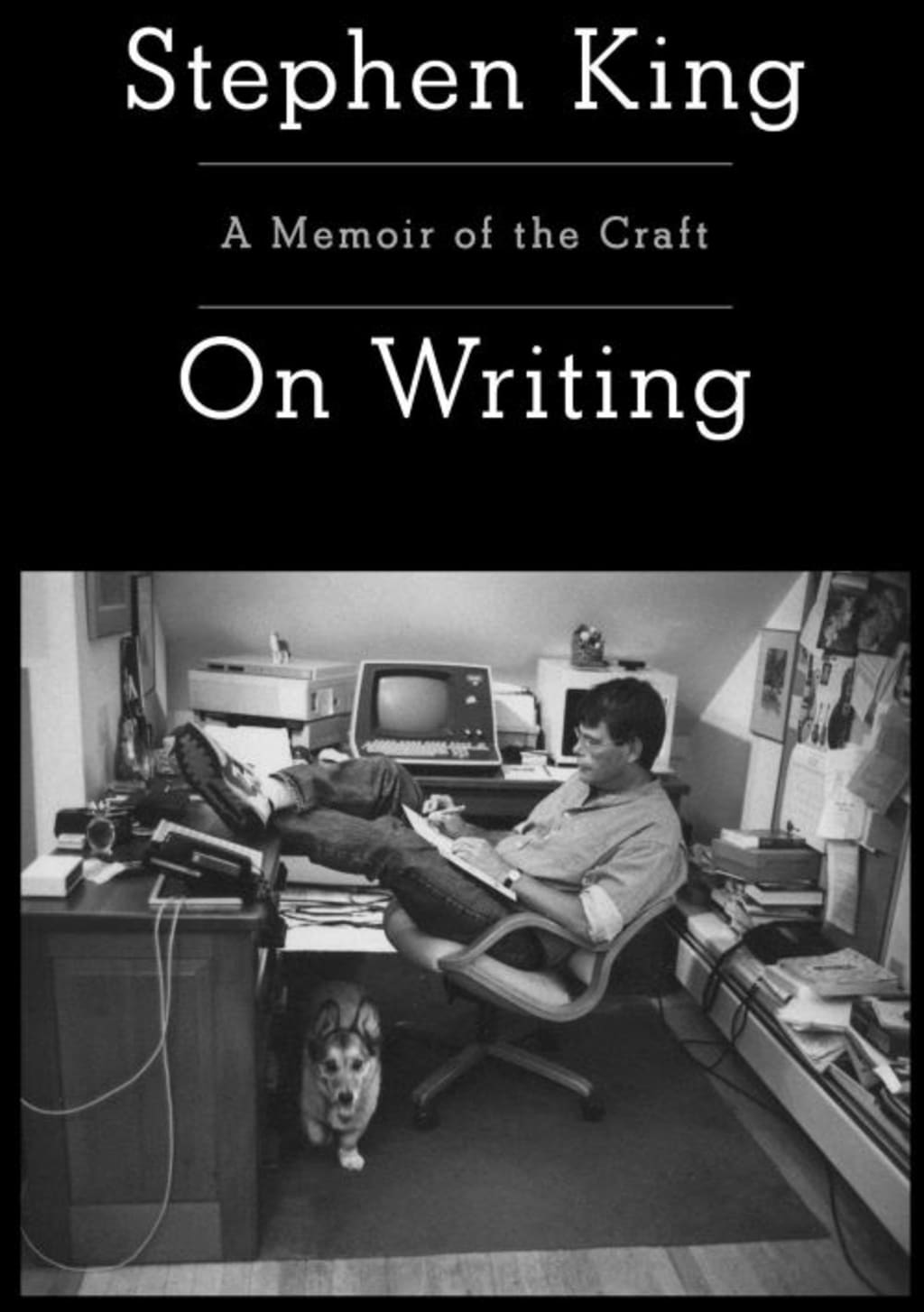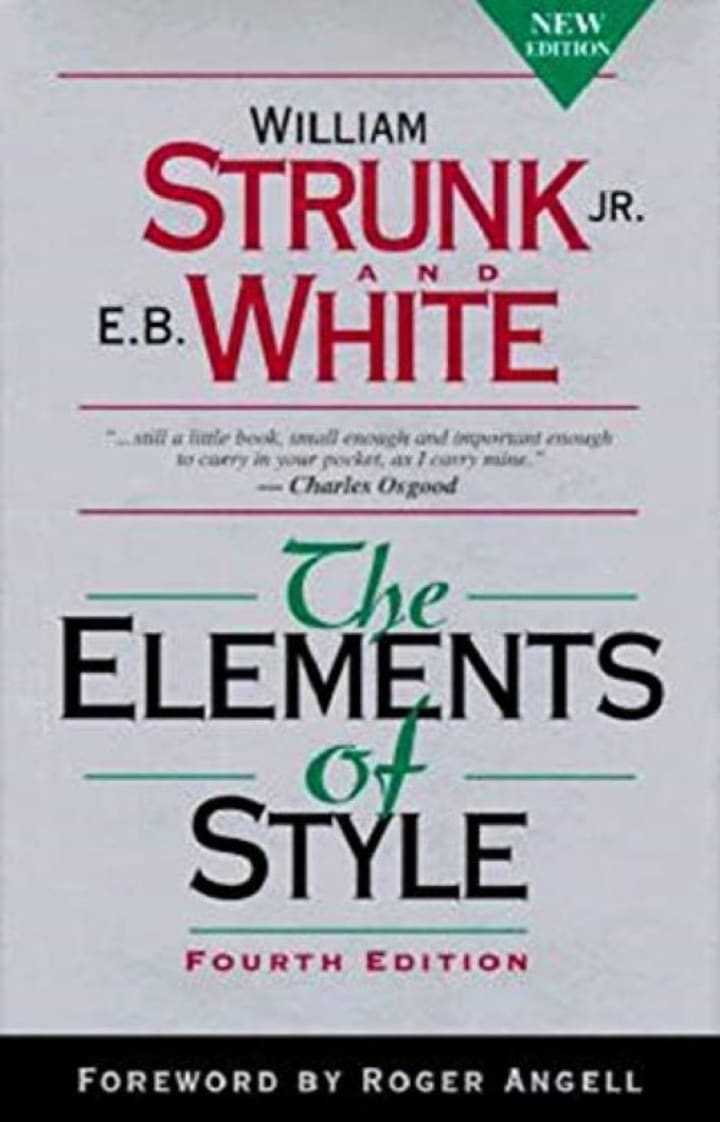
(Note: This book is a little older being published in 2001. The version of the book I read was the original. A reissue was published in 2020 and has addition commentary by Joe Hill and Owen King, which I cannot speak to at this time.)
I’ve read a lot of writing guides. Well, ok, probably not a lot, but more than a lot of people I would venture. I’m not an English major or anything related to that degree. Those folks have me beat. The books that immediately come to mind are The Elements of Style by Strunk and White (I mean, who doesn’t think of that book first? No seriously, if you haven’t gotten a copy, I highly recommend it. The Rules are very helpful for editing.) and the APA Style Manual (Riveting, exciting, couldn’t put it down. Just kidding. Yes, I’ve read the whole thing a few versions back as I was teaching it at the time). Everything else is a slew of science writing guides, a few writing guides from the handful of writing courses I took as an undergrad, business books and training manuals from my time as a manager that include some writing guides, and a few chapters here and there by renowned scientists giving well-intentioned advice for how to be a scientist.

On Writing was recommended reading for a writer and was sold to me as a writing guide. Since I am attempting to renew a hobby of writing with an eye to making it a career, and I enjoy Stephen King’s work, I picked up a library copy and started reading it as if it were a guide. I don’t think that’s a fair place to start as it is so much more than simply a writing guide.
The book is broken into four sections. The first is a memoir of how King got into writing and the earlier part of his career. The second is a style guide for writing. The third is more memoir about later life and writing. The final section is an example of writing from first draft through the initial editing steps.
I ate up the memoir sections. As long as an author can tell interesting stories that don’t get too bogged down in their personal philosophies, I really enjoy memoirs. Personal philosophy is fine, but I like to pick it out of the story more than have it be the story. King fits my preferred style in this regard. His stories show how he built his love of writing and which genres he preferred. They show his background and the life he led, which fed into the way he develops his characters. He doesn’t seem to be trying to convey a philosophical message, but there is certainly some underlying theme to the way the stories are told.
The second section was told more from the top of King’s soap box, but he spent time to convey his points in a meaningful way. The section is about the different components of writing, which he calls his toolbox, with a heavy reliance on the rules from The Elements of Style. The top of the toolbox are the more basic tools, spelling and grammar. Lower down you get into more involved writing style, including tense, character development, and plot development, etc. All of these, I ate up. I didn’t agree with everything he said, but his points were meaningful as I ponder the way I put words to print. I’m being more mindful of how I say something in a sentence. I’m asking more questions about how a reader may interpret a sentence. Will they understand my meaning? Am I being concise in the way I communicate something? Sometimes, these need to be done in the long form before editing to something shorter and that’s ok. Sometimes, I need to remind myself of that.
One section that I, as a newer creative writer, would like to have seen was more detail about rewriting. I am a published writer but for scientific journal articles. The process of writing is different. I’ve rarely tossed the original version for a rewrite. The articles are broken up into specific sections with regimented ways to include information. The hard parts, for me, were writing the introduction (the story that led to the hypothesis that we tested) and the discussion (the interpretation of the data and how it fits with the current literature in science). The discussion was typically the most likely to be rewritten, but it was not an overly daunting thing because a discussion was about 2,000 words, and I can write 2,000 words in a few hours if I know what I want to write. When it comes to rewriting a 90,000-word manuscript, I freeze. How do people do it? Do they really rewrite the manuscript from the beginning? Do they go through the original and pull out the parts they want to keep? The process, I’m sure, is different for everyone, but I would love a good guide on rewriting.
The third section of the book moves back into memoir-mode and was about living as a writer but focused on King’s near-fatal accident in 1999, when he was hit by a van as he was walking along a rural road near his home. The battle to regain his motivation for writing through the pain of recovery is inspiring. This book was in jeopardy of falling out of existence during that time. I’m so glad it didn’t. Given the date of publication, I was left wanting more memoir. King’s story isn’t finished yet.
I highly recommend reading this book if you’re a King fan and want to learn more about the person behind his books. The first and third sections alone are a highly entertaining trip through King’s experiences leading him to write and as a writer. He doesn’t shy away from his failings and that makes him even more relatable.
I also highly recommend this as a writer and wish I picked it up before. The focus is on fictional writing, but the concepts apply across fields and genres. As I mentioned, the second section has changed the way I view my own writing. I don’t have to take his advice, but I ask more poignant questions about my writing as I’m going along. All of that, for me, is a reason to love this book and take as much from it as I can. I hope anyone else reading it can as well.






Comments
There are no comments for this story
Be the first to respond and start the conversation.